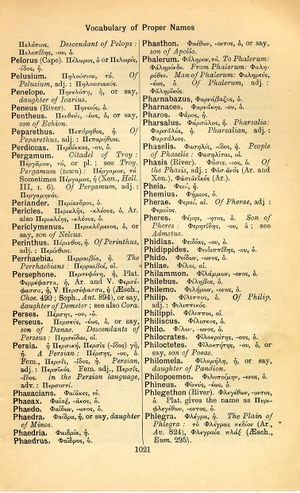Periander
From LSJ
τἄλλαι ... γυναῖκες ... ἀπήλαἁν τὼς ἄνδρας ἀπὸ τῶν ὑσσάκων → the other women diverted the men from their vaginas
English > Greek (Woodhouse)
Περίανδρος, ὁ.
Latin > English (Lewis & Short)
Pĕrĭander: dri, m., = Περίανδρος,
I son of Cypselus, a king of Corinth, and one of the seven wise men of Greece, Gell. 16, 19, 4; Aus. Lud. Sept. Sapient. fin.; Hyg. Fab. 221.
Latin > French (Gaffiot 2016)
Pĕrĭandĕr (-drus Hyg. Fab. 194 ), drī, m. (Περίανδρος), Périandre [roi de Corinthe, l’un des Sept Sages de la Grèce] : Gell. 16, 19, 4.
Latin > German (Georges)
Periander u. Periandrus, drī, m. (Περίανδρος), Tyrann von Korinth, einer der sieben Weisen, Form -der, Gell. 16, 19, 4. Hyg. fab. 221: Form -drus, Hyg. fab. 194 u. Auct. sent. bei Hyg. fab. 221. Sidon. carm. 23, 103.

